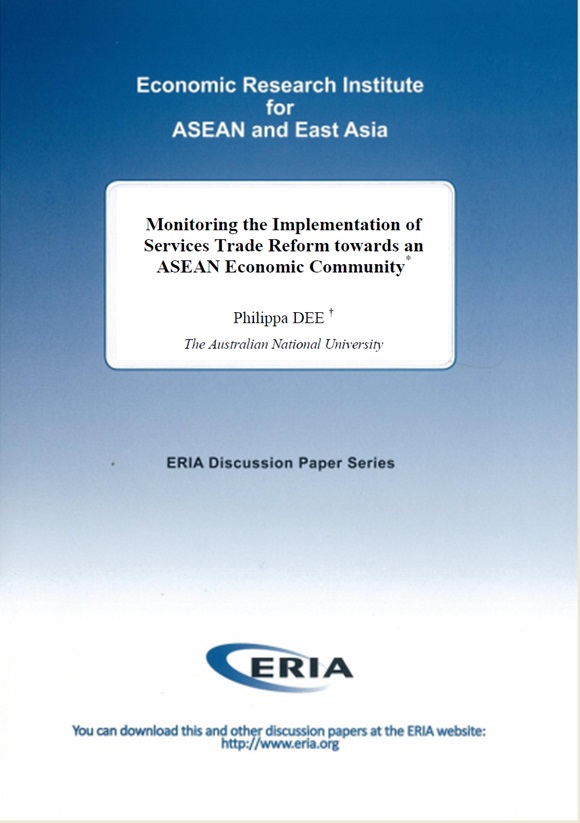Monitoring the Implementation of Services Trade Reform towards an ASEAN Economic Community

Date:
21 May 2015Category:
ASEAN, Finance and Macroeconomy, Regulation and Governance, Services, TradeType:
Discussion PapersTags:
Macroeconomy, Regulation and Governance, TradePrint Article:
Abstract
This paper assesses the extent to which the Association of Southeast Asian Nations (ASEAN) Framework Agreement on Services (AFAS) is helping ASEAN member states achieve their ASEAN Economic Community (AEC) goal of free flow of services in the region. Even after eight rounds of services trade negotiations, the trade commitments lag actual practice. Thus, if the AFAS process is to do a better job of driving real reform, it will need to be more closely linked to the domestic policy development processes in each member country. One strategy would be to switch from a positive list approach to a negative list approach to negotiations. This could be the 'game changer'; it would require a major policy review, and thereby allow countries to develop an overall services trade strategy anchored within the domestic policy development process. Other desirable changes would be a ratchet mechanism, whereby any future domestic reforms would be automatically bound into AFAS schedules, and a mechanism to ensure that whenever mode 3 commitments are made, the appropriate mode 4 commitments are also made. Supporting changes are also needed to domestic regulatory environments. For example, some ASEAN members need to improve the quality and enforcement of their prudential regulation if they are to make further progress in opening up their financial markets to foreign participation. Finally, it is critical to have regulatory frameworks that are conducive to contestability more generally, so that when foreign companies do enter the market, they do not have an unnatural AFAS-induced advantage over domestic new entrants. Thus, the key to making further real progress towards a free flow of services in the region is to focus on domestic regulatory improvement more generally.




